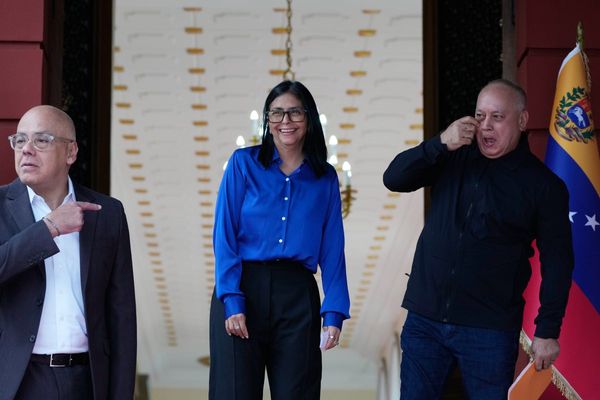
As Romanians head to the polls in a pivotal presidential election, the country’s struggle to come to terms with its communist past is taking on new urgency. The legacy of Ceausescu’s regime, and the nostalgia or disillusionment it inspires, now shapes debates about national identity and the direction Romania will take in a moment of deep political division and rising populism.
Gabriel Boga was only ten years old when it happened: the fall of the Ceausescu regime in December 1989. "The atmosphere changed overnight. There was freedom."
For decades, Nicolae Ceausescu, and his wife Elena had ruled Romania with an iron fist. "They called him the last Stalinist in Europe," says Catalina Andrei, Boga's partner because of "the restrictions" he imposed on the citizens.
There was greater freedom, but the Romanians had little time to enjoy it: the harsh realities of capitalism were beginning to take hold, and throughout the 1990s, little changed for them in material terms, following the final throes of Ceaușescu’s communist regime with its bankrupt - economy, hours-long queues at bakeries, and strict food rationing.

Ceausescu's rule was defined by "a lot of populism, cult of personality, the idea of nationalism," says Andrei. "Our history was the 'greatest' in this part of Europe, we were taught. We were encouraged to listen to nationalist music."
She added that Ceausescu also "tried to reduce the involvement of foreigners in [the] economy" in a show of "national independence," resulting in a refusal to borrow abroad - and leading to near bankruptcy in the 1980s and a decade of dire poverty for the Romanians.
Nostalgia
Boga and Andrei founded the Museum of Communism, located in Bucharest's Old Town, in order to respond to questions about Romania's recent history, but also to respond to a "certain sense of nostalgia" for times past, and maybe serve as a warning that not everything was ideal under Ceausescu.

"People who are in their mid-30s, have never experienced communism directly," says Emanuela Grama, an associate history professor with Carnegie Mellon University, contacted by RFI via Zoom.
"And what they have is stories shared by their parents," she added, but with a lack of immediate experience combined with nostalgia for the communist past, where propaganda preached equality, food and universal education for everybody.
The current school curriculum doesn't help much.
"During history lessons in high school, we never discussed policies that were toxic to the society," says Fransesca Cristea (27) who was born some eight years after the fall of the Ceausescu regime.
"We do not talk about the fact that the Romanian women were not able get abortions. We don't talk about the 'Pitești experiment', where communist authorities tortured and brainwashed intellectuals to transform them into brainless monsters. About the fact that your own neighbours were spying on you and that you were not able to have a conversation," she says.

But most people have forgotten the horrors. "We don't really talk about it," says Cristea. Unlike South Africa or Germany, which went through difficult periods of confrontation and reckoning with the darker parts of their history, Romania does not appear to have come to terms with its past. "There were trials, but they dragged on, and in the end, all the witnesses are dead," she says.
The lack of proper education, the reluctance to talk about the past, and the lingering appeal of communist ideals—such as equality, national independence, and the promise of free food, education, and employment for all—continue to fuel nostalgia for the communist era.
The role of TikTok
And then there is TikTok. "This is not the generation that would turn on the TV to get their news. They will really turn to social media," says Grama.
"[This is] a technology that has been extraordinarily powerful in creating and increasing polarisation of thought and beliefs."
On TikTok and other social media platforms, nostalgia for the communist past appears to be exploited by certain members of Romania’s far-right groups, which have been gaining in the polls over the past year.
French cyber agency warns TikTok manipulation could hit Romania's vote, again
Earlier this week, Marius Lulea, vice-president of the far-right Alliance for the Union of Romanians (AUR) - whose founder, George Simion, is the presidential candidate for the upcoming elections - publicly praised Ceaușescu, describing him as a "sovereignist" and commending him for "standing up ... against the Soviet occupation of Czechoslovakia" in 1968.
According to Grama, this was Lulea’s "way of talking about pushing for some independent Romania, disconnected from the European Union," under the guise of "promoting freedom." They do not seek "political independence and standing proud in Europe," but rather an "isolated, marginalised Romania"—a perspective that causes "profound tensions" within Romanian society.
For Christian Preda, a political science professor at the University of Bucharest, the current nationalist propaganda goes even further: not only does the far right exploit nostalgia for communism, but both George Simion and his "political father", Călin Georgescu (who was excluded from running for president after the cancellation of the 2024 elections), also flirt with nostalgia for Romania’s fascist movement during the interwar period.

"It's a combination of communist and fascist nostalgia," he says.
But Francesca Cristea rejects the argument that feelings of nostalgia are being exploited by the nationalists.
She belongs to the Aromanian minority, which was viewed with suspicion by the authorities, and grew up hearing the horror stories told by her grandparents, who were brutally deported from their home in Timișoara and abandoned in a barren field outside Bucharest, left to fend for themselves, and barely survived.
"The citizens of Romania did not help them because the communists had said they were 'contagious'," she explains, referring to the stigma attached to their ethnic minority status.
Because of her grandmother’s stories, she "never forgot" and never took the narratives spread on TikTok seriously. However, in her role as Head of Policy and Programmes at Europuls - an NGO promoting European integration in Romania - she did attempt to engage with the hate groups on TikTok that had been threatening her organisation.
'Hatred sessions'
During the cancelled presidential elections last year, when the pro-Russian candidate Călin Georgescu ran on an ultra-nationalist platform and came first in the initial round of voting, Cristea observed on TikTok that people were "holding some sort of hatred sessions", where influencers encouraged users to "hate the government", with individuals joining live sessions saying they would kill, claiming that all decision-makers were thieves and that government institutions should be burned down.
"The hate was overwhelming," she says.
It proved impossible to have a meaningful discussion, she explains. "I joined live sessions just to understand people’s perspectives," she recalls. "I was telling them that Romania had received substantial funding from the EU, and that infrastructure, hospitals, and schools were being built with European funds," but this was dismissed as "disinformation".
Suggestions that the EU’s contributions should be verified were dismissed, with some alleging that “the numbers are being falsified” by “the system”, which is “controlled by a foreign hand” that “manages and controls us.” In the end, she gave up and deleted her TikTok account.
Meanwhile, Cătălina Andrei hopes that her Museum of Communism will begin to attract more Romanian visitors.

"We are aiming to expand to the local population," she says, and is happy that schools have started to take an interest.
"Many young Romanians are visiting," she says, and "we welcome the young ones, to explain what the bad aspects of communism were, so that we make sure we will not go back to that kind of ideology again."







